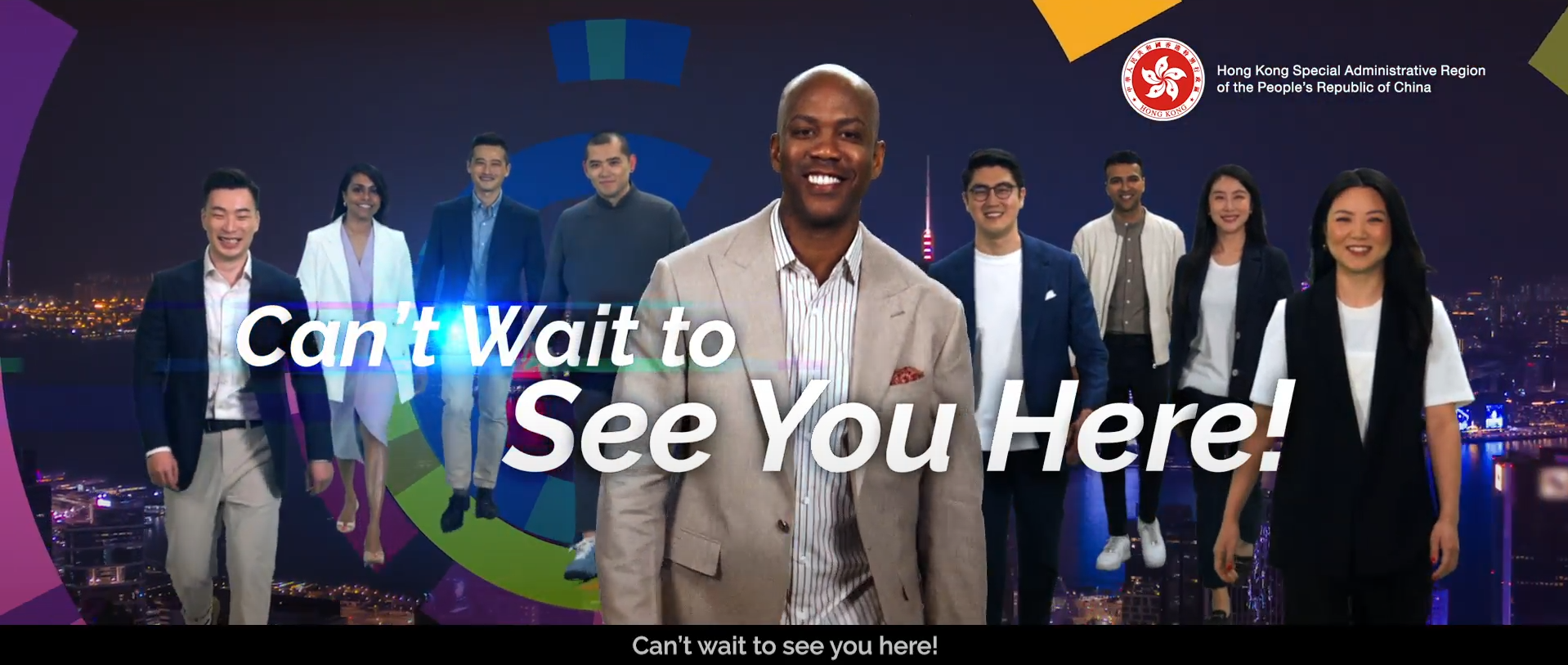LCQ13: The Financial Services Development Council
Following is a question by the Hon Carmen Kan and a written reply by the Acting Secretary for Financial Services and the Treasury, Mr Joseph Chan, in the Legislative Council today (June 5):
Question:
The Government established the Financial Services Development Council (FSDC) in 2013 as a high-level and cross-sectoral advisory body to engage the industry and formulate proposals to promote the further development of Hong Kong's financial services industry. In this connection, will the Government inform this Council:
(1) given that with effect from September 2018, FSDC has been incorporated as a company limited by guarantee without any policy execution or statutory functions, whether the authorities will consider changing its organisation to that of a statutory body and vesting it with the necessary powers and functions to better discharge its mission; if so, of the details; if not, the reasons for that;
(2) given that the terms of reference of FSDC include conducting policy research and industry surveys, as well as formulating proposals to the Government and regulators, of the following information about the relevant work of FSDC each year since 2018 (set out in a table by scope): (i) the number and subject of policy research and industry surveys conducted and (ii) the numbers of proposals submitted to and accepted by the Government and regulators, as well as the adoption rate;
(3) regarding the accepted proposals as mentioned in (2), of the mechanism put in place by FSDC to follow up on the implementation of such proposals mooted in its research reports; regarding the rejected proposals, whether FSDC has logged the reasons for rejection; if so, of the details; if not, the reasons for that;
(4) whether FSDC has conducted research on enhancing Hong Kong's status as an international financial centre, particularly in facilitating the securitisation of Mainland enterprises or assets, so that Hong Kong becomes an important platform for Mainland enterprises to "go global" and raise funds in various ways; if so, of the details; if not, the reasons for that;
(5) whether FSDC has proactively worked with regulatory and trade bodies to identify new opportunities for, and any constraints on, the sustainable growth and diversity of the financial services industry; if so, of the details; if not, the reasons for that; and
(6) of the annual number of seminars, roadshows and visits outside Hong Kong organised, as well as international events participated by FSDC since 2018 for the sake of promoting Hong Kong's financial services industry to Mainland authorities and overseas organisations, as well as identifying more development opportunities for Hong Kong, together with a tabulated breakdown by place where such activities were held?
Reply:
President,
In consultation with the Financial Services Development Council (FSDC), the reply to the various parts of the question is as follows:
(1) The FSDC was established in 2013 by the Government as a high-level, cross-sectoral advisory body to engage the industry in formulating proposals to promote the further development of Hong Kong's financial services industry and to map out the strategic development directions. The FSDC's incorporation as a company limited by guarantee in September 2018 aims to provide flexibility for discharging its functions and leveraging its unique position to engage with stakeholders in promoting the sustained development of the financial services industry. As the FSDC's current organisational setup enables the effective delivery of its functions, we have no plan at this stage to organise the FSDC as a statutory body. We will examine the resources, scale and mode of operation of the FSDC from time to time in continuing to promote industry development.
(2) and (3) One of the FSDC's key objectives is conducting policy researches, with the aim to facilitate in-depth exploration of issues conducive to the development of the financial services industry in Hong Kong and make recommendations for consideration by the Government, regulators, industry and relevant stakeholders. In this respect, the FSDC exchanges views with industry representatives and professional organisations from time to time concerning the latest market developments. From 2018-19 to 2023-24, the FSDC published 29 research reports, as detailed in Annex and the table below:
| Year | Number of reports issued | Number of recommendations made | Number of recommendations adopted | Adoption rate |
| 2018-19 | 5 | 30 | 25 | 83% |
| 2019-20 | 3 | 3 | 2 | 67% |
| 2020-21 | 6 | 21 | 10 | 48% |
| 2021-22 | 5 | 23 | 15 | 65% |
| 2022-23 | 5 | 23 | 10 | 43% |
| 2023-24 | 5 | 30 | 15 | 50% |
The FSDC's recommendations cover short, medium and long-term objectives. The time needed by the Government, regulators, industry, etc, for detailed deliberation, preparation and implementation of the recommendations varies. The FSDC will continue to take forward its recommendations through ongoing and systematic engagement with stakeholders, with a view to enhancing the business environment for the financial services industry.
(4) One of the FSDC's research foci is strengthening Hong Kong's position as the leading hub connecting the Mainland and the rest of the world. In recent years, the FSDC has been focusing on examining how to enhance Hong Kong's capital market and fund raising capabilities, thereby consolidating Hong Kong's position as an important gateway for supporting Mainland corporations in their global expansions while attracting overseas capital to the Mainland market. For example, the FSDC published a report titled "Hong Kong as an International Financial Centre – Enhancement of Hong Kong's IPO offerings" in March 2022, proposing the expansion of listing channels for innovative pre-revenue companies to meet the financing needs of small and medium enterprises, which was supported by the Government and stakeholders. The Hong Kong Exchanges and Clearing Limited introduced a new listing regime for specialist technology companies in 2023.
With a view to enhancing Hong Kong's position as an international financial centre, the FSDC published a report titled "Observations on Market Liquidity Enhancement" in August 2022. The key recommendations included facilitating market makers and exchange-traded funds to deliver more comprehensively their market function as liquidity providers. The FSDC published another report titled "Enhancing Market Liquidity and Diversity: Enhancing Hong Kong's Competitiveness as an International Capital Formation Centre" in August 2023, putting forward proposals to enhance the liquidity and diversity of the capital market (including revising the stamp duty on stock transfers). Many recommendations have been implemented. Examples include the launch of "Hong Kong Dollar-Renminbi Dual Counter Model" and the reduction of the stamp duty on stock transfers.
The FSDC's researches also cover various areas of the financial market in the Mainland and the relations with Hong Kong. For example, the FSDC released a report titled "Accelerating Offshore RMB (Renminbi) Market Development: Enriching Hong Kong's Offerings as an International Financial Centre" in March 2024, in which the recommended directions are in line with the five measures announced by the China Securities Regulatory Commission in April to expand the mutual market access between the capital markets of the Mainland and Hong Kong.
(5) The FSDC collaborates closely with public and private organisations as well as stakeholders to jointly explore new development opportunities and challenges of the financial services industry. In 2023-24, the FSDC participated in more than 200 industry meetings, engaging in continuous exchange of views and collaboration with the Government, regulators, industry organisations, etc.
With emerging and diversified financial trends, the opportunities brought by the development of virtual assets and Web3 in recent years have attracted industry attention. The FSDC has since 2021 been examining the development potential and market dynamics of virtual assets and Web3, proactively facilitating discussions among the industry, the Government and relevant regulators. The FSDC also published a report titled "Realising the Potential of Blockchain in Advancing Hong Kong's Financial Services Industry" in March 2024, focusing on exploring the potential of blockchain technology in bolstering the development of the financial services industry in Hong Kong, particularly in the business-to-business context.
In addition, the FSDC also published a report titled "Family Wisdom: A Family Office Hub in Hong Kong" in July 2020, aiming to enhance Hong Kong's strengths as a family office hub. The recommendations have been adopted and implemented by the Government, including providing profits tax concessions for family-owned investment holding vehicles managed by single family offices in Hong Kong, and establishing the Hong Kong Academy for Wealth Legacy to provide a platform for collaboration, networking, knowledge sharing and talent training.
(6) The FSDC has been showcasing globally the strengths and opportunities of Hong Kong as an international financial centre, leveraging its professional network and unique position as an industry advisory body. From 2018-19 to 2024-25, the FSDC has organised or participated in a total of 138 seminars, road shows, external visits and other international activities as detailed in the table below:
| Number of seminars, roadshows, external visits other international activities (by area) organised and participated in by the FSDC |
Total | |||||||
| Year | Hong Kong | Mainland | Asia | Middle East | Europe | North America | Africa | |
| 2018-19 | 5 | 2 | 1 | 0 | 0 | 0 | 0 | 8 |
| 2019-20 | 7 | 2 | 1 | 0 | 0 | 1 | 0 | 11 |
| 2020-21 | 10 | 4 | 1 | 0 | 2 | 0 | 0 | 17 |
| 2021-22 | 13 | 3 | 2 | 0 | 2 | 1 | 0 | 21 |
| 2022-23 | 12 | 3 | 1 | 0 | 3 | 1 | 1 | 21 |
| 2023-24 | 39 | 11 | 0 | 1 | 1 | 1 | 0 | 53 |
| 2024-25 (as of end-May 2024) | 5 | 1 | 0 | 1 | 0 | 0 | 0 | 7 |

